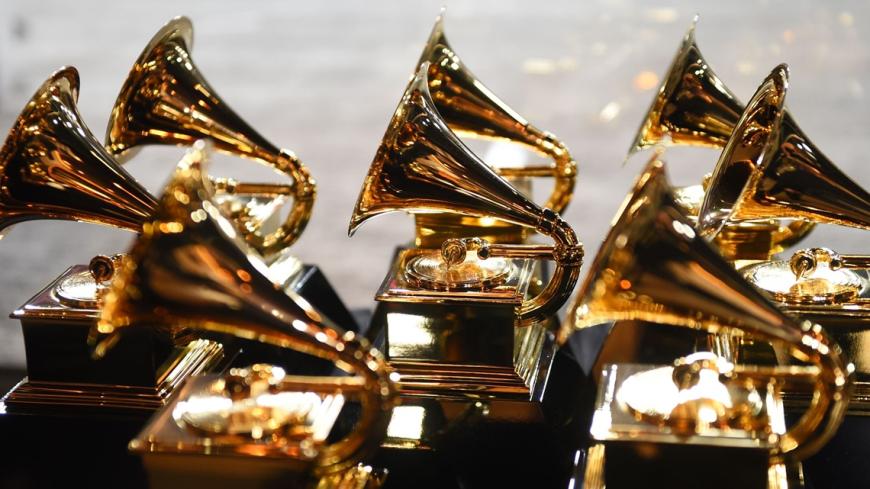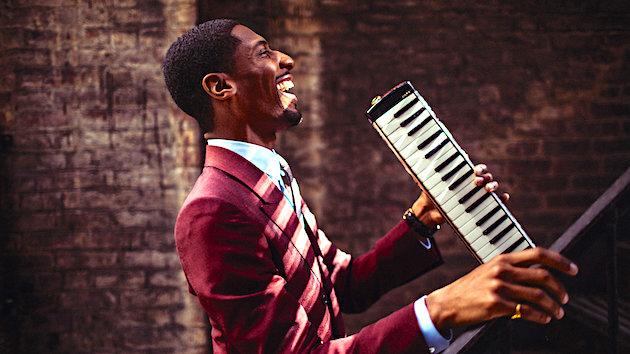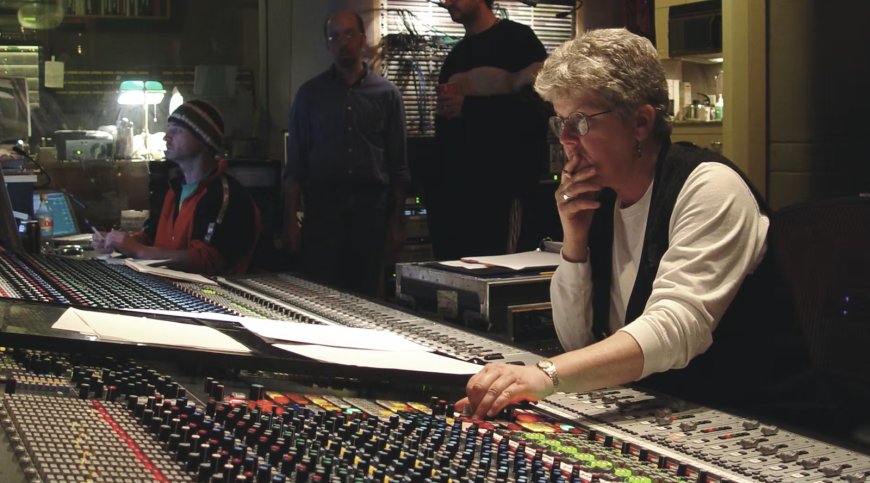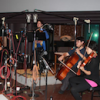
The 64th Grammy Awards — after a pandemic cancellation in 2020, remote approximation in 2021, rescheduled by three months because of Omicron in 2022 — finally unspooled Sunday evening, in the Las Vegas MGM Grand Garden.
Unlike last week’s Academy of Motion Picture Arts and Sciences (Oscars) show, the Recording Academy invited Ukrainian President Volodymyr Zelensky to send a recorded message. “Our musicians wear body armor instead of tuxedos,” he said. “They sing to the wounded in hospitals. Even to those who can’t hear them.
“Support us in any way you can,” Zelensky said. “Anything, but silence.”
After Zelensky’s address, John Legend performed his song “Free” with Ukrainian singer Mika Newton and poet Lyuba Yakimchuk, who fled the war in Ukraine days ago.
Headlines of the evening:
– Album of the Year: Jon Batiste, for We Are
– Best Pop Vocal Album: Olivia Rodrigo for Sour
– Best R&B Album: Jazmine Sullivan for Heaux Tales
– Best New Artist: Olivia Rodrigo
– Best Country Album: Chris Stapleton for Starting Over
– Song of the Year: Silk Sonic’s “Leave the Door Open” (Brandon Anderson, Christopher Brody Brown, Dernst Emile II, and Bruno Mars).
– Best Jazz Vocal Album: Esperanza Spalding’s Songwrights Apothecary Lab
– Best Pop Solo Performance: Olivia Rodrigo’s “drivers license”
The “event” of the slaps-free evening took place backstage when Olivia Rodrigo took her three Grammys with her to talk with reporters, and dropped one, breaking it — an accident that also befell Taylor Swift in 2010 (one of four) and Adele in 2017 (for album of the year).

Pardon us for being somewhat self–centered, but SF (mostly) Classical Voice is focusing on winners of the few and often neglected, always- on-the-bottom-of-the-list classical categories.
Geographically, there was just one award gracing the Bay Area, even against nominations for the San Francisco Symphony and local artists:
Best Engineered Album, Classical
Chanticleer Sings Christmas, Leslie Ann Jones, engineer; Michael Romanowski, mastering engineer (Chanticleer)

In the Los Angeles area, Gustavo Dudamel with the LA Phil, several L.A. choruses, and numerous soloists picked up a significant win for Mahler’s No. 8"
Best Choral Performance
Mahler: Symphony No. 8, “Symphony of a Thousand,” Gustavo Dudamel, conductor; Grant Gershon, Robert Istad, Fernando Malvar–Ruiz, and Luke McEndarfer, chorus masters (Leah Crocetto, Mihoko Fujimura, Ryan McKinny, Erin Morley, Tamara Mumford, Simon O’Neill, Morris Robinson & Tamara Wilson; Los Angeles Philharmonic; Los Angeles Children’s Chorus, Los Angeles Master Chorale, National Children’s Chorus & Pacific Chorale)
And the rest:
Best Opera Recording
Glass: Akhnaten, Karen Kamensek, conductor; J’Nai Bridges, Anthony Roth Costanzo, Zachary James and Dísella Lárusdóttir; David Frost, producer (The Metropolitan Opera Orchestra; The Metropolitan Opera Chorus)
Ahead of:
– Bartók: Bluebeard’s Castle, Susanna Mälkki, conductor; Mika Kares & Szilvia Vörös; Robert Suff, producer (Helsinki Philharmonic Orchestra)
– Janácek: Cunning Little Vixen, Simon Rattle, conductor; Sophia Burgos, Lucy Crowe, Gerald Finley, Peter Hoare, Anna Lapkovskaja, Paulina Malefane, Jan Martinik and Hanno Müller–Brachmann; Andrew Cornall, producer (London Symphony Orchestra; London Symphony Chorus and LSO Discovery Voices)
– Little: Soldier Songs, Corrado Rovaris, conductor; Johnathan McCullough; James Darrah and John Toia, producers (The Opera Philadelphia Orchestra)
– Poulenc: Dialogues Des Carmélites, Yannick Nézet–Séguin, conductor; Karen Cargill, Isabel Leonard, Karita Mattila, Erin Morley and Adrianne Pieczonka; David Frost, producer (The Metropolitan Opera Orchestra; The Metropolitan Opera Chorus)
Best Orchestral Performance
Philadelphia Orchestra, Florence Price: Symphonies Nos. 1 and 3; Yannick Nézet-Séguin, conductor
Ahead of:
– Nashville Symphony Orchestra, Adams: My Father Knew Charles Ives; Harmonielehre; Giancarlo Guerrero, conductor
– Mendelssohn Choir of Pittsburgh & Pittsburgh Symphony Orchestra, Beethoven: Symphony No. 9; Manfred Honeck, conductor
– San Francisco Symphony, Muhly: Throughline; Nico Muhly, conductor
– Seattle Symphony Orchestra, Strauss: Also Sprach Zarathustra; Scriabin: The Poem of Ecstasy; Thomas Dausgaard, conductor
Best Contemporary Classical Composition
Shaw: Narrow Sea, Caroline Shaw, composer (Dawn Upshaw, Gilbert Kalish, and So Percussion)
Best Classical Solo Vocal Album
Mythologies, Sangeeta Kaur & Hila Plitmann; Danaë Xanthe Vlasse, pianist (Virginie D’Avezac De Castera, Lili Haydn, Wouter Kellerman, Nadeem Majdalany, Eru Matsumoto & Emilio D. Miler)
Best Chamber Music/Small Ensemble Performance
Beethoven: Cello Sonatas – Hope Amid Tears, Yo–Yo Ma & Emanuel Ax
Best Classical Instrumental Solo Performance
Alone Together, Jennifer Koh
Producer of the Year, Classical
Judith Sherman
Best Score Soundtrack for Visual Media
The Queen’s Gambit, Carlos Rafael Rivera, composer
and
Soul, Jon Batiste, Trent Reznor and Atticus Ross, composers
Best Contemporary Instrumental Album
“Tree Falls,” Taylor Eigsti
Best Musical Theater Album
“The Unofficial Bridgerton Musical,” Emily Bear, producer; Abigail Barlow and Emily Bear, composers/lyricists (Barlow & Bear)
Best Compilation Soundtrack for Visual Media
The United States vs. Billie Holiday, Andra Day
Best Classical Compendium
Women Warriors – The Voices of Change, Amy Andersson, conductor; Amy Andersson, Mark Mattson and Lolita Ritmanis, producers.







